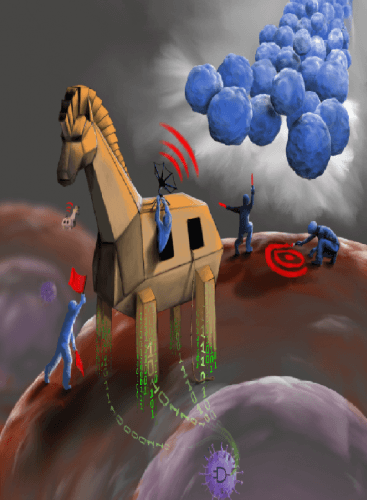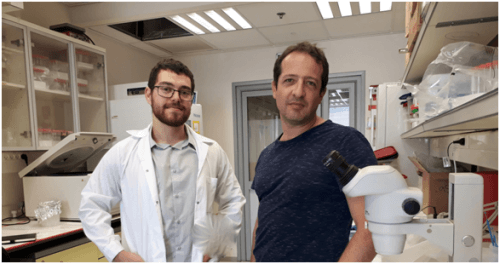In a joint study by researchers fromMIT And from the Hebrew University, a protein "switch" is being developed that triggers an immune response only when it recognizes the cancer cells, without harming other healthy tissues, as was published this week in the journal Cell

The field of immunotherapy is currently seen as having great potential in the research struggle to develop drugs against a wide variety of cancers.
Despite this success, the use of immunotherapy remains limited due to a lack of tumor-specific antigens and substances that can cause the immune system to respond to a particular type of cancer. The toxicity of certain treatments, such as systemic treatment for the whole body, for example, is another obstacle. Beyond that, the treatments are not successful in all cases. Indeed, only about 30-40% of patients will respond to treatment, even when it comes to the most advanced drugs.
As a result, in recent years, an ambition has developed in the world of research to develop combined treatments - different but complementary treatments that are used to increase the immune response, in order to damage the cancer cells in a precise and specific way by targeting the immune system against the cancer cells only.
However, in order to activate the immune system against the tumor, but not against the healthy tissue, a sophisticated mechanism is required that knows how to differentiate between them. In a research collaboration between a team of American researchers from MIT and an Israeli team of researchers from the Hebrew University, led by Dr. Yuval Tabah, the researchers developed a method for finding short sequences of DNA that differentiate between cancer cells and healthy tissues.
These sequences are called "promoters". Promoters are DNA sequences that respond to an existing state in the cell and change it by expressing the corresponding proteins. For example, in the case of heatstroke there are promoters that are activated and cause the expression of proteins that help to cope.
The research carried out by Dr. Lior Nissim, other researchers from MIT and the doctoral student who is also a medical student at the Hebrew University, Doron Stoff, found that promoters that exist naturally in cells do not distinguish well between cancer cells and healthy cells.
Therefore, the researchers developed a method that allows for the "design" of promoters with a particularly high distinction between cancer cells and healthy cells, and continue to develop it by sequencing DNA and using machine learning algorithms. All this in order to differentiate between each type of cancer and the healthy tissues in an accurate way and to produce a "guided missile" that only hits the cancer. The "missile" can be dressed with different methods for killing cancer cells, including the immunotherapy "Trojan horse" approach.
"Today we are in the midst of a huge revolution that will only continue to grow, where computers, biology and engineering come together to change medicine and the Israeli academy has a substantial part in the process." Dr. Yuval Tabah, head of the Israeli laboratory at the Hebrew University, explains. "This project and similar ones will make it possible in the near future to 'target' a specific cell, a cancer for example, and eliminate it either by the immune system or by activating the cell's suicide process."

To do this, the research team built a genetic circuit encoded in DNA, which is designed to distinguish between cancerous cells and non-cancerous cells. The circuit, which can be customized to respond to different types of tumors, is based on simple gates used in electronics. Gates of this type will cycle only when two inputs are present.
The method is based on the fact that cancer cells differ from normal cells in their gene expression profile. The researchers developed synthetic promoters - DNA sequences, designed to initiate gene expression but only in cancer cells.
The circuit is delivered to cells in the infected area of the body via a virus and targets tumors more precisely than existing treatments, as it requires two specific signs of cancer before it will respond.
The researchers were able to build a system that works only in specific cancer cells. They attached to the system an "alarm mechanism" that activates the immune system and injected the system with the help of viruses into a mouse with a cancerous tumor.
In response, the cancer cells And only the cancer cells Activate the alarm mechanism that caused the immune system to attack the tumor. Moreover, the researchers proved that the circuit can also target other cancer cells.
Therefore, the researchers hope that the system will also be used to treat other diseases, such as rheumatoid arthritis, inflammatory bowel disease and other autoimmune diseases. The researchers now plan to examine the circuit more fully in a variety of cancer models. They also aim to develop the circuit's delivery system, so that it is more flexible and simpler to manufacture and use.
See more on the subject on the science website:
